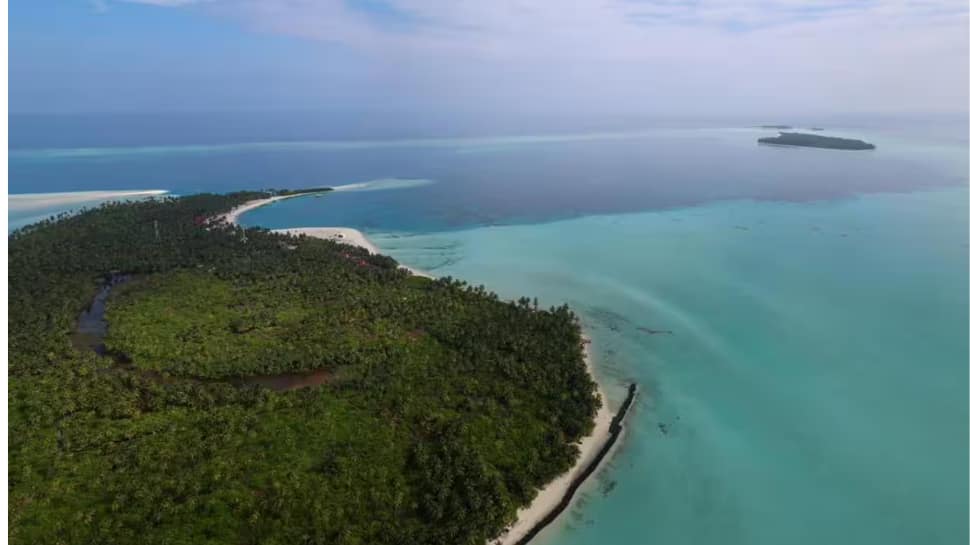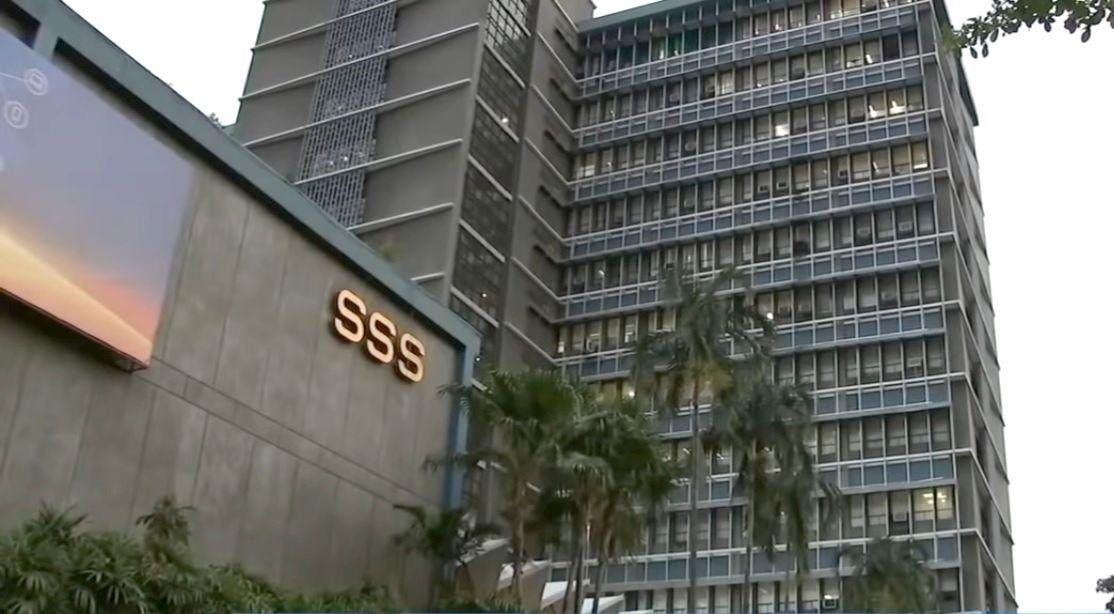
As 2024 came to an end, ADAKU ONYENUCHEYA takes a look at the significant events that shaped Nigeria’s maritime industry. The year 2024 witnessed notable developments in the nation’s maritime sector, from policy reforms, transformation, operational hurdles, and safety challenges to navigating economic uncertainties. While the industry grappled with issues such as port congestion, bureaucratic inefficiencies, infrastructural deficiencies, and security threats, it also recorded significant strides in innovation and progress.
Below is an in-depth analysis of the major events that have shaped the maritime landscape this year. Boat accidents and safety concerns The year was marred by a troubling increase in boat accidents across the nation’s inland waterways, claiming numerous lives and highlighting the urgent need for enhanced safety measures and stricter enforcement protocols. Despite efforts by the National Inland Waterways Authority (NIWA) to enforce regulations through the introduction of the Waterways Transport Code, issues such as overloading, operator negligence, poor vessel maintenance, night travel and inadequate safety measures continued to plague the sector.

The year began with a tragic boat accident on January 4. According to data compiled by The Guardian, there were 23 reported boat mishaps to date across 13 states, including Anambra, Rivers, Lagos, Zamfara, Adamawa, Nasarawa, Kwara, Bayelsa, Sokoto, Taraba, Benue, Kogi and Niger. These incidents resulted in an estimated 733 fatalities, with 243 people rescued, with the primary causes including collisions, capsizing, overloading, night travel, poor navigation, mechanical failures, and other unknown factors.
These grim statistics underscore the urgent need for stronger enforcement mechanisms to ensure compliance with safety standards. Also, the continued rise in fatalities serves as a sombre reminder of the sector’s safety gaps and the necessity for coordinated efforts to address them. FX fluctuations and drop in importation The volatile exchange rate in 2024 profoundly impacted importation costs, causing significant disruptions across Nigeria’s maritime and logistics sectors.
Customs import duty rates, tightly linked to the dollar exchange rate, fluctuated drastically throughout the year. On February 2, 2024, the exchange rate for clearing cargo was adjusted from N951.94/$1 in December 2023 to N1,356.
88/$1. By December 4, 2024, the rate had risen to N1,642.65/$1, creating substantial challenges for importers.
Although, the FX duty rate has continued to fluctuate between N1,500/$1 to about N$1,600. These sharp fluctuations led to a tripling of import duty costs, making it increasingly expensive to clear goods at ports and a decline in importation volumes, as many businesses found it unsustainable to import goods at such high rates. This has also caused the diversion of Nigerian-bound cargoes to neighbouring countries, where clearing costs are more affordable.
The ripple effects of these challenges extended to the broader economy, significantly increasing the cost of doing business and driving up the prices of goods, further burdening consumers. Replacing NICIS with B’odogwu A key achievement in 2024 was the Nigerian Customs Service’s (NCS) replacement of the contentious Webb Fountain’s Nigeria Integrated Customs Information System (NICIS II) with the indigenous Unified Customs Management System, named ‘B’Odogwu’. The transition came in response to numerous complaints from clearing agents regarding the frequent downtimes of the NICIS II platform, which sometimes lasted up to a week, disrupting operations and reportedly costing importers over N200 million in losses per week.
According to the Controller General of Customs, Bashir Adeniyi, introducing B’Odogwu aligns with the Nigeria Customs Service Act of 2023 and represents a significant step in the agency’s modernisation efforts. Adeniyi emphasised that the platform would streamline end-to-end business processes, provide stakeholders with customised integration capabilities, support more efficient and data-driven decision-making and enhance the ease-of-doing-business at ports. The deployment of B’Odogwu at the Port and Terminal Multi-Services Limited (PTML) in Lagos marked its pilot phase, with plans to expand to other ports once the system is perfected.
While the system has been praised for improving transaction efficiency, its introduction was not without challenges. Some stakeholders criticised the initial teething problems that caused delays in clearing cargo, however, Customs management assured users that these issues would be resolved as the system becomes fully operational nationwide. Increase in maritime workers’ minimum wage Another landmark achievement in 2024 was signing a N200,000 minimum wage agreement for maritime workers.
This deal was brokered by the Ministry of Marine and Blue Economy and the Nigerian Shippers’ Council (NSC), involving the Shipping, Shipping Agencies, Clearing, and Forwarding Employers Association (SACFEA) and the Maritime Workers Union of Nigeria (MWUN). Nearly two decades in the making, this agreement addressed long-standing challenges in reaching a Collective Bargaining Agreement (CBA) between shipping companies and their employees. It now establishes a standard for pay and benefits in Nigeria’s shipping industry.
However, the agreement faced resistance from Hull Blyth Shipping Company, a foreign shipping firm in Nigeria. Their refusal to comply led to threats from MWUN to shut down port terminals and oil platforms. While SACFEA urged workers to direct their grievances solely at Hull Blyth, the NSC pledged to intervene and resolve the standoff.
Piracy and insecurity While piracy incidents in the Gulf of Guinea declined in 2024, security concerns remain a persistent challenge for Nigeria’s maritime sector. The ICC International Maritime Bureau (IMB) reported 12 incidents in the Gulf of Guinea between January and September 2024, which also included 11 crew kidnappings and 21 crew members taken hostage. There is also the continued pirate attacks on boat passengers, especially in the Bonny waterways of Rivers State.
The Nigerian Shippers’ Council also raised concerns about piracy, cargo theft and lawlessness disrupting port operations. These challenges have led to operational delays and increased shipping costs, further straining the maritime industry. The IMB urged Nigeria and other Gulf of Guinea nations to intensify security measures to protect vessel crews from piracy and armed robbery.
Anti-Piracy Security Head at Trident Group America Inc., Prof. Alfred Oniye, emphasised the importance of sustained regional partnerships to combat maritime insecurity and investment in surveillance technologies to monitor and secure the waterways.
Receiving largest container vessels The country successfully received some of the largest container vessels ever to dock at its ports, underscoring its growing capacity for high-volume trade. The Nigerian Ports Authority (NPA) and APM Terminals, Apapa, and Lekki Deep Seaport celebrated the arrival of a COSCO Shipping vessel with a 7,000 twenty-foot equivalent units (TEUs) capacity. The vessel, flying the Singaporean flag, is 272 meters long, 43 meters wide, and features a 14.
3-meter draft. Lekki Deep Seaport also received the CMA CGM Scandola, a 15,128 TEU LNG-powered container ship, notable as the largest vessel of its kind to visit West Africa. This ship, operated by COSCO Shipping, measures 366 meters in length and 51 meters in width.
The Onne Multipurpose Terminal (OMT) welcomed the KOTA CEMPAKA, the largest container vessel, to carry out entire operations in Nigeria’s eastern ports. Owned by Pacific International Lines (PIL), the vessel has a 6,600 TEU capacity and measures 300 meters in length. These developments highlight Nigeria’s readiness to handle larger vessels, enhancing its competitiveness in global trade and strengthening its position as a key maritime hub in West Africa.
Clearing Apapa-Tin can Island port roads The decongestion of Apapa-Tin Can Island port roads was significant in 2024, addressing one of the country’s longest-standing logistical challenges. Businesses along the corridor suffered losses of billions of Naira yearly due to traffic gridlock, illegal activities and inefficiencies in cargo movement to the Apapa-Tin-Can Island seaports, Apapa-Ijora and Apapa-Oshodi expressway. Nigerian ports also lost competitiveness as importers diverted cargo to neighbouring countries due to delays, while residents faced severe disruptions, and some businesses were forced to relocate.
In May 2024, a collaborative effort by the NPA, Lagos State Government and private sector stakeholders began a comprehensive cleanup of the port access roads. The project included clearing refuse, shanties, and illegal checkpoints, removing abandoned trucks, and enforcing stricter traffic regulations. Cargo movement has become more streamlined, significantly cutting transit times, while the efficiency of the Apapa and Tin Can Island ports has improved, restoring some of their lost competitiveness.
Customs vehicle auction The Nigeria Customs Service (NCS) introduced a revamped and digitised vehicle auction platform, marking a critical step toward enhancing transparency and efficiency in its operations. The initial e-auction system, launched in 2017 under the former Controller General of Customs, Hameed Ali, faced widespread criticism for alleged favouritism and inefficiencies. The revamped e-auction system, under CGC Bashir Adeniyi, facilitated the transparent disposal of seized and overtime goods.
In February and March 2024, the platform generated N1.6 billion in revenue, reflecting public confidence in the updated system. This initiative addressed past criticisms, boosted government revenue, and improved the public perception of the Customs Service.
Nigeria bid for IMO Category C election Nigeria has taken bold steps towards securing a seat in the International Maritime Organisation (IMO) Category C, reflecting its commitment to advancing maritime governance. The Minister of Marine and Blue Economy, Adegboyega Oyetola, led heads of maritime agencies in the country to garner international support from shipping communities. Also, President Bola Ahmed Tinubu signed six critical IMO conventions, signalling Nigeria’s commitment to global maritime standards.
These conventions will be submitted to the IMO headquarters, showcasing Nigeria’s adherence to international maritime governance norms. The conventions will strengthen maritime safety, security and environmental protection measures as well as enhance global reputation and strategic positioning for the 2025 elections. Passage of maritime bills 2024 saw legislative progress in addressing longstanding gaps in Nigeria’s maritime laws.
The Port Economic Regulatory Agency Bill proposed by the Nigerian Shippers’ Council (NSC) aims to institutionalise the council’s role as a regulator to ensure competitive pricing and eliminate monopolistic practices. The House of Representatives passed the bill and is awaiting Senate concurrence. Another Bill is the establishment of a Nigerian Coast Guard to tackle insecurity in the nation’s waters and improve efficiency in combating piracy and smuggling.
However, supporters argue the bill is critical for addressing maritime insecurity, and critics highlight concerns about overlapping functions with the Nigerian Navy. Stakeholders react Industry leaders and stakeholders in the maritime sector are sounding alarms about worsening conditions for importers and businesses in 2025, identifying critical areas that require improvement, such as exchange rate instability, fiscal policies, customs operations and global trade dynamics. The former Public Relations Officer of the Tin Can Island chapter of the Association of Nigerian Licensed Customs Agents (ANLCA), Onome Monije, highlighted how exchange rate instability in 2024 severely affected businesses.
She said import costs have become unpredictable, with planned budgets doubling or tripling due to currency fluctuations. According to her, many businesses have abandoned their shipments and cannot cope with rising costs. Monije urged the government to stabilise the exchange rate, emphasising that stability is essential for business planning and operational efficiency.
The Head of the Customs and Trade Facilitation Committee at the Importers Association of Nigeria (IMAN), Ajanonwu Vincent, outlined the challenges that stifled trade operations in 2024, including government anti-trade fiscal policies that have introduced bottlenecks and discouraged ease of doing business. He also highlighted the global trade slowdown, as reduced trade volumes globally have exacerbated local challenges, while conflicts disrupting supply chains have raised shipping costs. Vincent also pointed out the perceived “high-handedness” by the Nigeria Customs Service, which has further discouraged importers.
Vincent stressed that these factors collectively make import operations unprofitable and warned that 2025 could be even tougher unless proactive measures are taken..















